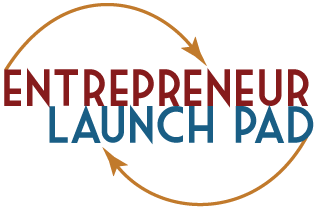Presentation made to ELP Sandy by Wesley N. Lang, Attorney
There are four basic types of intellectual property:
Trademarks Trade Secrets Patents Copyrights
Obtaining your Intellectual Property rights gives you 3 advantages:
- It gives you the tools to limit what your competitor can do.
- It gives you a competitive advantage.
- It keeps people from suing you.
Trademarks
Trademark—applies to the goods you produce for sale, not services
Service Mark—applies for services you provide for sale, not goods
Names—Names are part of your Trademark or Service-mark. When picking names, avoid a descriptive name like “Bob’s Quality Window Washing.” The trademark office will not register a descriptive name. Do…
- Pick a name that suggests what you do.
- Select one that is clever. The more clever it is, the better.
- Borrow one from another field. More than one entity may own a name if they are in a different product or service fields. A good example is Jet Blue for the airline and the same name for a carpet cleaner in Austin, TX.
- Go to U.S.P.T.O.gov to see if anyone has used or registered the name. Check to see if they are in a vastly different field of work designation.
- Build up rights in Utah by using and registering the name in Utah. You do not have to register nationally right away. Website marketing is trademark usage.
Federal Registration gives you nationwide rights to use and block other from using the name all over the USA The filing fee for each application is $325. It costs about $1000 to have a lawyer register your trademark. Separate filings are best for the unique design element, the words by themselves, and the overall design. Labels showing the final design should be submitted with the application. Obtain the Federal Registration at the earliest possible date.
“Trademark Infringement” lawsuits occur when two or more trademarks are “confusingly similar.” Make sure your Trademark is not similar to the “point of confusion” with other business trademarks.
Trade Secrets
Your unique, original idea
Keep it secret for as long as you can. When it becomes necessary to disclose it, have the person sign a non-disclosure agreement attached to a statement of the idea. Make sure anyone you disclose it to is a person you can completely trust—their personal integrity is impeccable.
Patents
A patent gives you a monopoly on your unique idea.
Keep it secret as long as possible. Before disclosing the details of the idea, have an application on file (patent pending) or have anyone you’re sharing it with sign a binding non-disclosure agreement. These are expensive to enforce, so make sure the person has complete integrity.
There are two applications to choose from. The first is a Provisional Patent, which gives you a year to test the market. This can cost you from $3000-5000. The second is a Non-Provisional Patent, which costs from $5000-25,000. Generally, it takes 3 years to receive a patent.
To be patentable, the product must pass 2 tests:
- It can’t exist in its literal form in the prior art.
- It can’t be an obvious combination of two or more elements that exist in the prior art
Most patentable inventions are a combination of two or more ideas that already exist.
Copyright
A copyright naturally exists in a creative work from the time it is created—particularly writing and art.
However, you cannot sue someone for infringement of a copyright unless you have the work federally registered. Copyright infringement can hammer you at your website. Be careful that you don’t claim any other person’s sentences as your own. Even your images, that you bought, could be pirated. So know who you are buying from. When in doubt, always give credit for using pieces of another’s work.
www.googlepatents.com is a good resource to check on patents.
